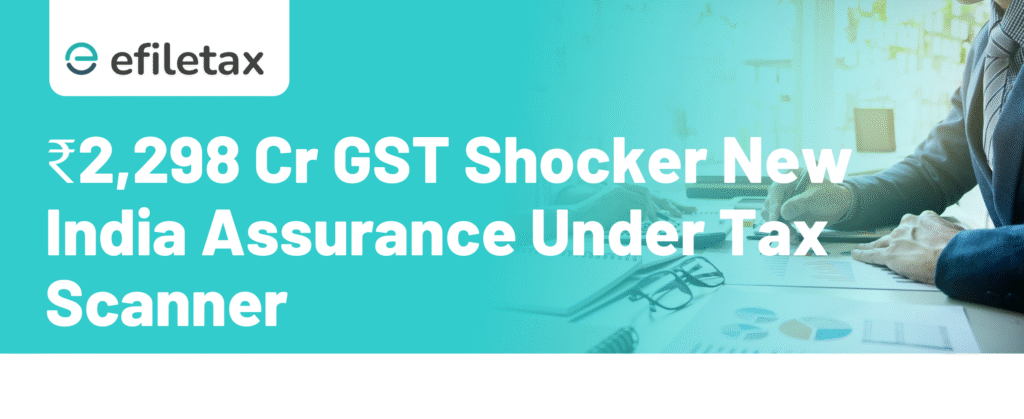
New India Assurance gets ₹2,298 crore GST show cause notice
India’s largest general insurer — New India Assurance Co. Ltd — has received a ₹2,298 crore GST show cause notice from the Directorate General of GST Intelligence (DGGI). The notice reportedly pertains to unpaid GST liabilities on co-insurance premium and reinsurance commission transactions.
This development has significant implications not just for the insurance giant, but for the entire Indian insurance sector. Here’s what it means, legally and practically.
Why was the GST show cause notice issued?
According to sources and industry reports:
- The DGGI alleged that GST was not paid on:
- Co-insurance premium income where New India acted as the lead insurer.
- Reinsurance commission received from foreign reinsurers.
Key legal issues involved
| Issue | DGGI Viewpoint | Insurer’s Likely Defence |
|---|---|---|
| Co-insurance transactions | Lead insurer earns income → GST applicable | Acts as facilitator, not service provider |
| Reinsurance commission from abroad | Considered import/export of services → GST applicable | May claim exemption under reverse charge or export rules |
Relevant GST provisions
- Section 7 of CGST Act, 2017: Defines scope of supply.
- Section 13(2) & 13(3) of IGST Act: Place of supply for cross-border services.
- Rule 9 of CGST Rules: On determination of value in insurance services.
- CBIC’s earlier clarifications on insurance sector taxation (including Circular No. 177/09/2022-GST).
What is co-insurance and why it matters
- Co-insurance involves multiple insurers covering a large policy.
- Usually, one insurer acts as the leader, collecting premium and distributing it among others.
- The dispute arises whether this distribution is a taxable service or reimbursement.
🔍 Expert View:
CA firms advising insurers suggest that industry-wide clarity is lacking. Some argue that the lead insurer’s role is administrative, and not a distinct taxable supply.
What happens after the show cause notice?
- Opportunity of personal hearing before adjudicating authority.
- Adjudication order passed (may include interest + penalty).
- Appeal option exists under Section 107 of CGST Act.
Potential implications for the insurance sector
- High exposure: Many general insurers follow similar co-insurance practices.
- Litigation risk: Past transactions may face scrutiny.
- Need for clarity: Industry bodies like GIC and IRDAI may seek a sectoral circular from CBIC.
FAQs
Q1. Is GST applicable on reinsurance commission?
Yes, if services are received from foreign reinsurers and not exempted under export/reverse charge provisions.
Q2. Can GST be levied on co-insurance transactions?
It depends. If the lead insurer is considered to provide an independent service, GST may apply. Otherwise, it can be argued as reimbursement.
Q3. What should insurers do now?
Review all past co-insurance and reinsurance arrangements, and document tax positions clearly.
Summary
New India Assurance faces ₹2,298 crore GST show cause notice for alleged non-payment on co-insurance and reinsurance transactions. The case could impact the insurance sector and trigger wider scrutiny by GST authorities on similar arrangements.
Final Thoughts
The ₹2,298 crore GST show cause notice to New India Assurance marks a critical tax dispute in the Indian insurance sector. As more details emerge, insurers must reassess their co-insurance models and prepare for possible GST audits.
📌 Need expert help with GST notices or audit support?
Efiletax.in offers professional assistance to navigate GST compliance and litigation.